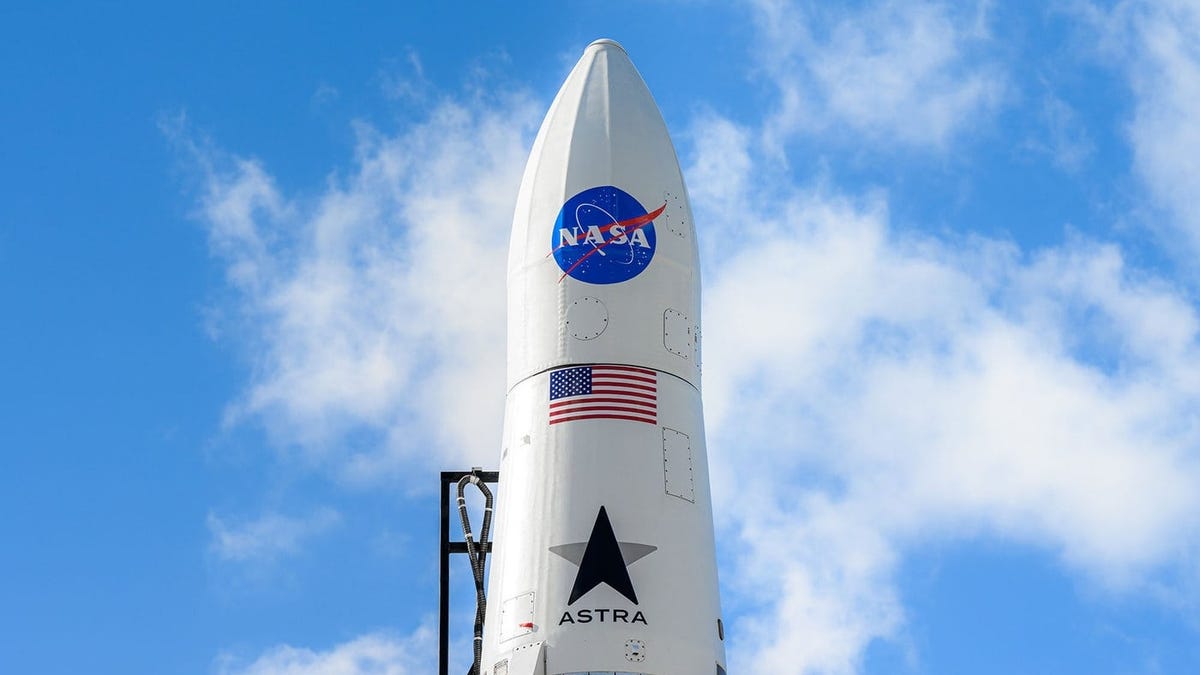Astra rocket mission launches, fails to deploy NASA satellites
Space is tough. An in-flight anomaly brought NASA's Elana 41 mission to an untimely end.

NASA's Educational Launch of Nanosatellites 41 mission satellites took off on an Astra rocket, but weren't deployed in orbit.
Astra is a new commercial rocket company with quite a pedigree of former NASA and SpaceX pros behind it. On Thursday, Astra attempted its first operational satellite launch, but it didn't quite go as planned. The payload wasn't successfully deployed into orbit.
The Educational Launch of Nanosatellites (Elana 41) mission got off the ground from Cape Canaveral Space Force Station in Florida, and it was looking good at first. NASA had four CubeSats -- small research satellites -- on board. NASASpaceflight carried a live feed of the event. The video appeared to show the vehicle spinning or tumbling several minutes after launch.
"We experienced an issue during today's flight that resulted in the payloads not being delivered to orbit," Astra tweeted. "We are deeply sorry to our customers NASA and the small satellite teams. More information will be provided after we complete a data review."
We experienced an issue during today's flight that resulted in the payloads not being delivered to orbit.
— Astra (@Astra) February 10, 2022
We are deeply sorry to our customers @NASA and the small satellite teams. More information will be provided after we complete a data review.
Astra's aim is to offer affordable launch services for small satellites and payloads. The NASA satellites that failed to deploy included a technology demonstration of a drag sail designed to deorbit satellites to reduce space debris.
"Missions like these are critical for developing new launch vehicles in this growing commercial sector," said NASA Launch Services Program mission manager Hamilton Fernandez in a statement. "The Astra team demonstrated dedication to supporting NASA's mission. The lessons learned will benefit them and the agency going forward."
Astra and the Federal Aviation Administration (FAA) will investigate the in-flight anomaly. While a mission failure is disappointing, it's not unusual, especially for a company developing a new rocket system. The path to orbit is paved with missions that didn't make it.

